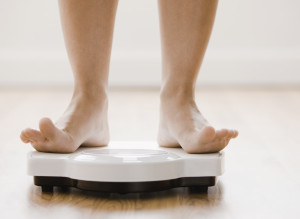Hit the Gym
Expert: Michele Olson, PhD, professor of physical education and exercise science at Auburn University at Montgomery, Alabama
"Yes, you can lose weight with diet alone, but exercise is an important component. Without it, only a portion of your weight loss is from fat -- you're also stripping away muscle and bone density. Since working out stimulates growth of those metabolic tissues, losing weight through exercise means you're burning mostly fat. The number on the scale may not sound as impressive, but because muscle takes up less space than fat does, you look smaller and your clothes fit better. Data show that to lose weight with exercise and keep it off, you don't need to run marathons. You just need to build up to five to seven workouts a week, 50 minutes each, at a moderate intensity, like brisk walking or Zumba. Resistance training helps, too. But don't just do isolated weight-lifting exercises like biceps curls -- you'll get leaner faster by using your body weight against gravity, as with movements like squats, lunges, push-ups and planks. And, of course, beyond burning fat, people shouldn't forget that exercise can have other impressive health perks, like improving the quality of your sleep, lowering your cholesterol and reducing your stress level."
Eat Smart
Expert: Shawn M. Talbott, PhD, nutritional biochemist and former director of the University of Utah Nutrition Clinic
"As a rule of thumb, weight loss is generally 75 percent diet and 25 percent exercise. An analysis of more than 700 weight loss studies found that people see the biggest short-term results when they eat smart. On average, people who dieted without exercising for 15 weeks lost 23 pounds; the exercisers lost only six over about 21 weeks. It's much easier to cut calories than to burn them off. For example, if you eat a fast-food steak quesadilla, which can pack 500-plus calories, you need to run more than four miles to 'undo' it!
"So, what should you eat? It's true that low-carb diets tend to be the most popular because they offer the fastest results, but they can be difficult to sustain. I recommend striving for a more balanced plan that focuses on fruits and veggies, lean proteins and whole grain carbs. And never cut calories too low (this causes your metabolism to slow, and you can start losing muscle mass). For a healthy daily calorie count, allow 10 calories per pound of body weight -- so a 150-pound woman should shoot for a 1,500-calorie target. That way, you should be able to lose weight no matter how much you exercise."
The Last Word: While diet and exercise are both important for long-term weight loss, remember this: "You can't out-exercise a bad diet," says Talbott.



No comments:
Post a Comment